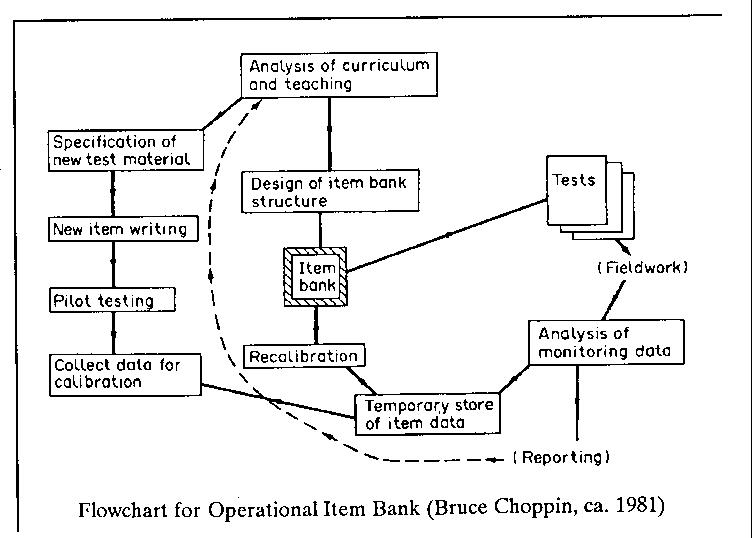The Journey to Knowledge
There are three stages of development through which a new idea is
brought into use. This is the pattern by which the Rasch model has been
developed into a useful tool for the construction of tests.
Stage 1: Try It Out
The first stage was the application of the idea that Rasch
encapsulated in his model. His neat and clean
probabilistic model, which strongly
represents the essence of what Item Response Theory is intended to do,
was an essential measurement insight and a decisive departure from
traditional testing. Application of the Model generally produced
reasonable results. But there were some problematic ones. In
Portland,we could not link tests a full grade level apart in difficulty
in a way which satisfied us.
Stage 2: Learn from Experience

In the second
stage we paid attention to the conditions under which the model functions
successfully. We found that with our Portland data it took 300 cases and
40 items to stabilize item calibrations. We ran into trouble when we
tried to link tests more than three tenths of a logit apart in
difficulty. However, we still believed that fit statistics and individual
standard errors were all we needed to know. This was a hangover from
years of statistical training, understandable but inadequate for the task
ahead. We experienced a period of maturing, and of finding out through
trial and error that the Rasch model requires test developers to think
clearly and comprehensively.
Stage 3: Transform your Mind
The third phase emerges as a discontinuity. It arises from the ashes
of conventional statistical methodology like a Phoenix - a new way of
incorporating old ideas into unforeseen contexts. This third phase
requires thought processes compatible with the nature of the model as
probably measuring a variable.
Probabilistic thinking must replace deterministic ideas in the
intrinsic beauty of the relationship expressed by the theory.
Deterministic thinking vilifies randomness as destructive, though
inevitable. It follows that randomness must be minimized. Probabilistic
thinking, however, perceives randomness to be constructive. Randomness
is like wind, fire and water: too much or too little are bad. A healthy
variable requires a harmonious amount. Deterministic thinking looks for
yes/no directives based on significance tests. Probabilistic thinking
looks for reasonable patterns and useful compromises.
The power and the sensitivity of the Rasch model is apparent when
judging an item's compatibility with a variable and the relationship of
each item to the others in the test instrument. When linking tests,
selection of meaningful linking items and their calibrations requires
good judgement, not just statistical know-how. This same judgmental
procedure is necessary to build an item bank.
Rasch practitioners, I exhort you! Abandon the hopeless quest for
deterministic perfection. Decide instead to construct meaning and
utility. That construction is often found to have greater beauty and to
yield more insight than perfection could have ever offered. "To travel
hopefully is a better thing than to arrive" (Robert Louis Stevenson,
Virginibus Puerisque: El Dorado.)
George Ingebo
3708 NE 136 Place
Portland OR 97230
The journey to knowledge. Ingebo G. … Rasch Measurement Transactions, 1996, 10:2 p. 508
